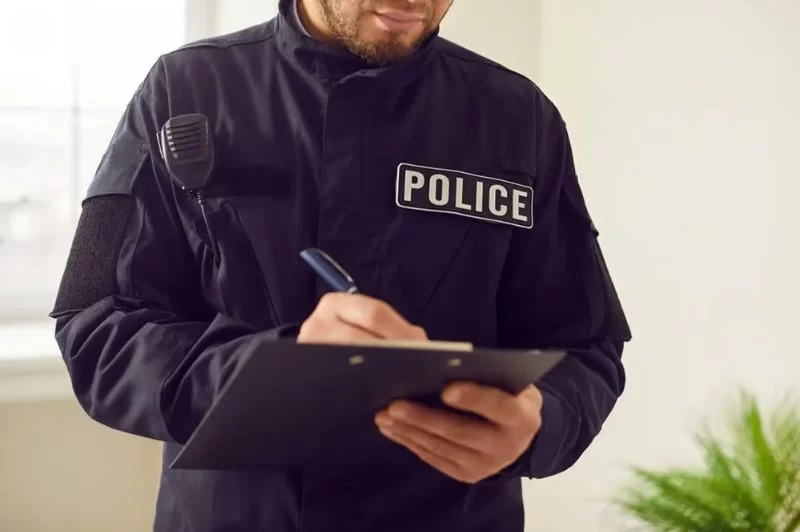- why-police-reports-matter-in-personal-injury-cases
- key-information-included-in-a-police-report
- how-police-reports-impact-your-lawsuit
- real-life-examples-of-police-reports-in-action
- working-with-fred-miller-lawyer-for-stronger-claims
1. Why Police Reports Matter in Personal Injury Cases
When you’re involved in a car accident, slip-and-fall, or any other type of incident that results in injury, one of the first documents created is a police report. This official record often becomes the foundation of a personal injury claim, providing a neutral account of what happened. Understanding the role of police reports in personal injury lawsuits can make a crucial difference in how your case is handled and how compensation is determined.
Police reports contain factual details from the scene—such as weather, location, involved parties, and witness statements—that lawyers and insurance companies rely on to assess liability. In many ways, they act as a starting point for gathering additional evidence like medical records, surveillance footage, and expert testimony. Without one, proving fault or negligence can become much more challenging.
2. Key Information Included in a Police Report
Police officers are trained to document incidents objectively, which makes their reports valuable in personal injury lawsuits. These reports often include:
2.1 Factual Details
Basic information such as the date, time, and location of the accident forms the foundation of a police report. Officers also record road conditions, visibility, vehicle positions, and property damage. This data helps lawyers reconstruct events accurately.
2.2 Statements and Witness Accounts
Police reports typically include statements from those involved and any bystanders who witnessed the event. These firsthand accounts help clarify who may have been at fault or whether negligence played a role. When witness statements support your version of events, they can significantly strengthen your personal injury claim.
2.3 Officer’s Observations
In some cases, police officers note their professional opinions about the cause of the incident—such as whether one party appeared distracted or if evidence pointed to reckless driving. Although not always admissible in court as expert testimony, these observations can influence negotiations and insurance evaluations.
2.4 Citations or Arrests
If any citations or arrests were made at the scene, these details can be pivotal in establishing fault. For instance, if the other driver was cited for running a red light, that evidence can strongly support your claim for damages.
3. How Police Reports Impact Your Lawsuit
While a police report doesn’t automatically decide the outcome of a personal injury lawsuit, it carries substantial weight. Lawyers use it as both a roadmap and a credibility anchor when building a case.
3.1 Establishing Liability
In most personal injury lawsuits, proving negligence is key. A detailed police report helps establish who was responsible and how the accident occurred. Even if the report doesn’t directly assign fault, it provides enough evidence for attorneys to identify patterns and support arguments in your favor.
3.2 Negotiating with Insurance Companies
Insurance adjusters heavily rely on police reports to validate claims. If the report supports your side, it can speed up settlement discussions. Conversely, if there are inaccuracies or missing details, your lawyer can submit corrections or additional evidence to clarify the record.
3.3 Courtroom Evidence
Although police reports are generally considered hearsay in court, they are often admissible under certain exceptions—particularly when used to corroborate witness testimony or provide context. Experienced attorneys know how to strategically introduce these reports to support your argument.
4. Real-Life Examples of Police Reports in Action
Consider a case in which a driver was rear-ended at a traffic light. The police report noted that the at-fault driver admitted to checking their phone moments before the collision. This single observation helped the injured driver’s lawyer negotiate a favorable settlement without going to trial.
In another situation, a pedestrian injured in a crosswalk used the officer’s documentation of skid marks and traffic signal timing to prove the driver was speeding. The police report’s attention to physical evidence ultimately persuaded the jury to award substantial compensation.
These examples show that a well-documented police report can be a deciding factor in whether a case settles quickly or escalates to court.
5. Working with Fred Miller Lawyer for Stronger Claims
At Fred Miller Lawyer, we understand how critical police reports are in personal injury lawsuits. Our team reviews every detail—verifying accuracy, identifying inconsistencies, and gathering supporting evidence to strengthen your case. We also handle communication with law enforcement and insurance companies to ensure your report is complete and accurate.
One of our clients, for instance, came to us after an accident where the police report omitted a witness statement. By tracking down the witness and adding their testimony to the file, we turned a weak claim into a strong one, resulting in fair compensation for medical expenses and lost wages.
If you’ve been injured in an accident, don’t underestimate the importance of documentation. Police reports are more than paperwork—they’re the foundation of your legal strategy. Fred Miller Lawyer can help you navigate every step, ensuring your rights and recovery are fully protected.


 iep attorney los angeles
iep attorney los angeles haynes & haynes pc
haynes & haynes pc sadek and cooper law offices
sadek and cooper law offices fayad law pc
fayad law pc 140 broadway 46th floor new york ny 10005 united states
140 broadway 46th floor new york ny 10005 united states meyers rodbell & rosenbaum pa
meyers rodbell & rosenbaum pa